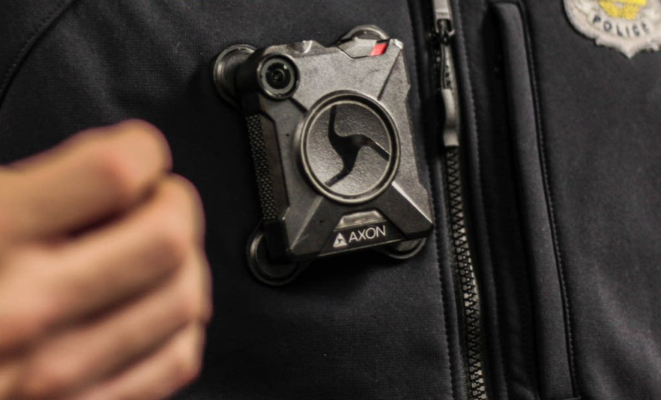Everyone was excited when the liberty movement got everyone on the stick in favor of law enforcement wearing body cameras. Finally, some accountability, transparency, pick the word you like best. But not so fast. There are some serious things attached.
Police wear body cameras, but no one, including private citizens, can share them.
XII. Except as authorized in this section, no person, including without limitation officers and their supervisors, shall edit, alter, erase, delete, duplicate, copy, subject to automated analysis or analytics of any kind, including but not limited to facial recognition technology, share, display, or otherwise distribute in any manner any BWC recordings or portions thereof. This paragraph shall not apply to the sharing of a still image captured by the BWC to help identify individuals or vehicles suspected of being involved in a crime.
Marc Machon, whom many of our readers know about – they send me clips from time to time was the source of this discovery.
Marc Manchon [is] a man who runs a YouTube channel called Press NH Now doing first amendment auditing. What did Manchon do that the Hillsboro police need protection from? He released their Body Worn Camera (BWC) footage on his YouTube channel.
There are more details here, and it’s not pretty for the local PD whose on-camera antics – recorded on the police body-worn-camera (BWC) – cannot legally be shared with the general public. Machon can ask for and receive them, but becasue of how the law is written, that is where the transparency ends. A problem only the NH Legislature can fix.
Hopefully the legislature will update this terrible statute to protect the people from criminal charges for sharing BWC videos and make BWC videos even more transparent and accessible without requiring criminal charges to get the videos in discovery, as right now the statute claims the videos are “for law enforcement purposes only” in part XIII.
There’s not much point to body cameras if sharing what they tell us is limited to LEOs who may not have the best record on disciplining officers or putting citizens’ rights ahead of department PR.
And I get that it was written to prevent abuse of the records. The state defines handling and use limitations with an eye toward protecting the liberty and privacy of individuals (as if I know). Still, you ought to – at the very least – be able to share body camera footage of your encounter if you so choose.
And then put body cameras on public educators and staff, please.
